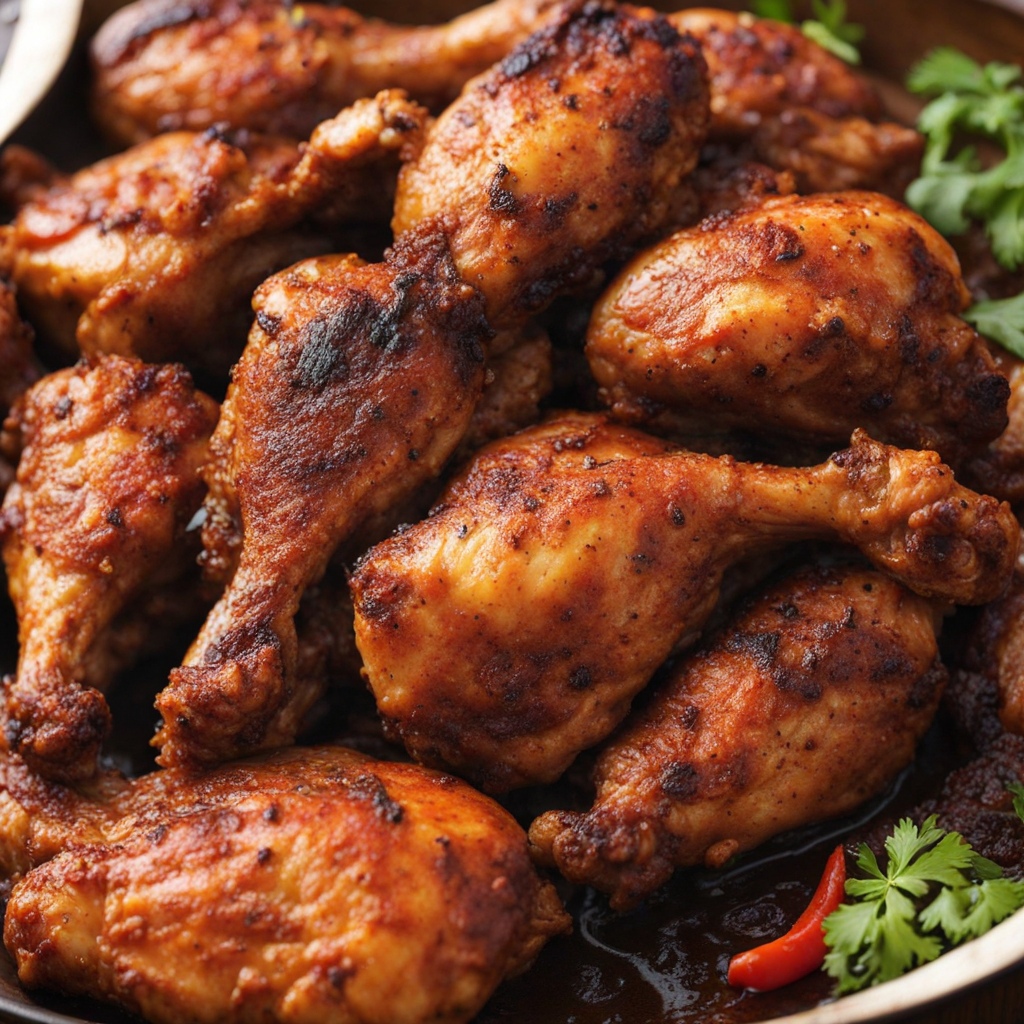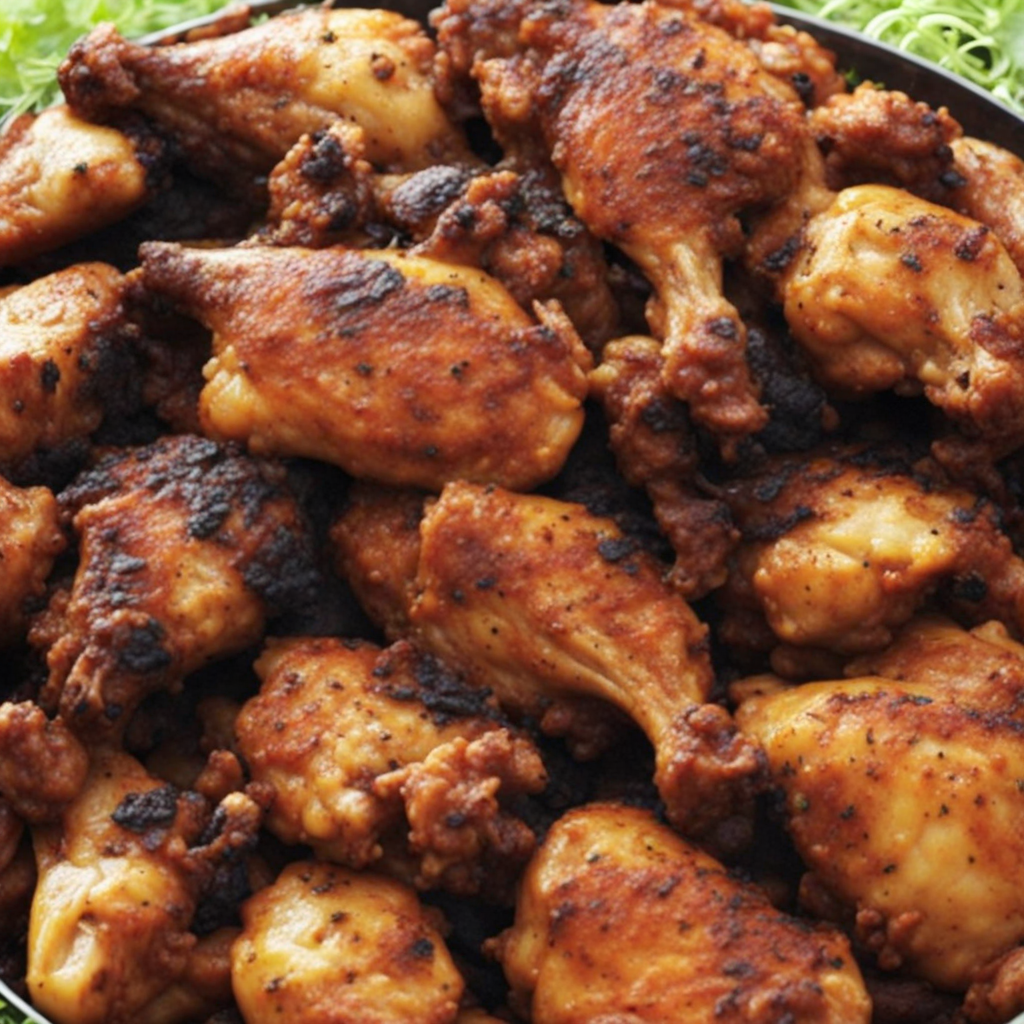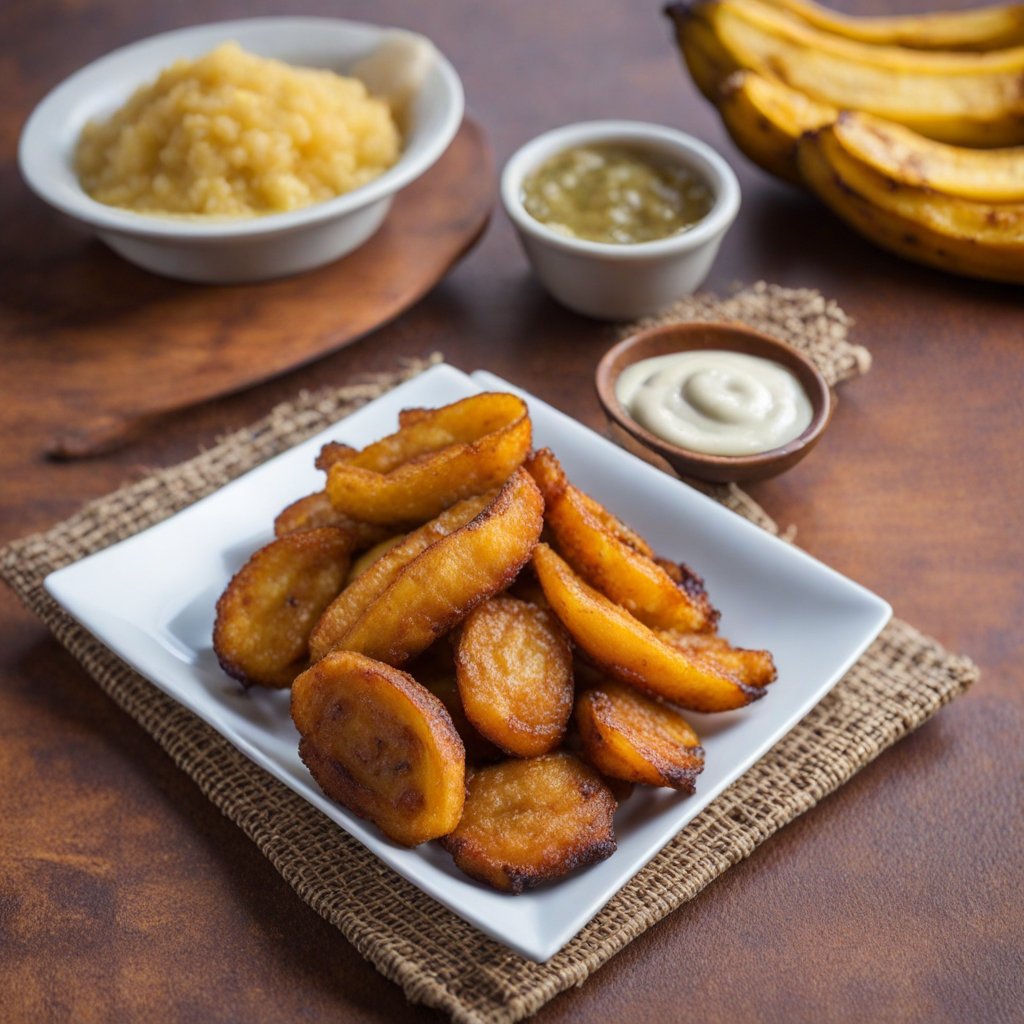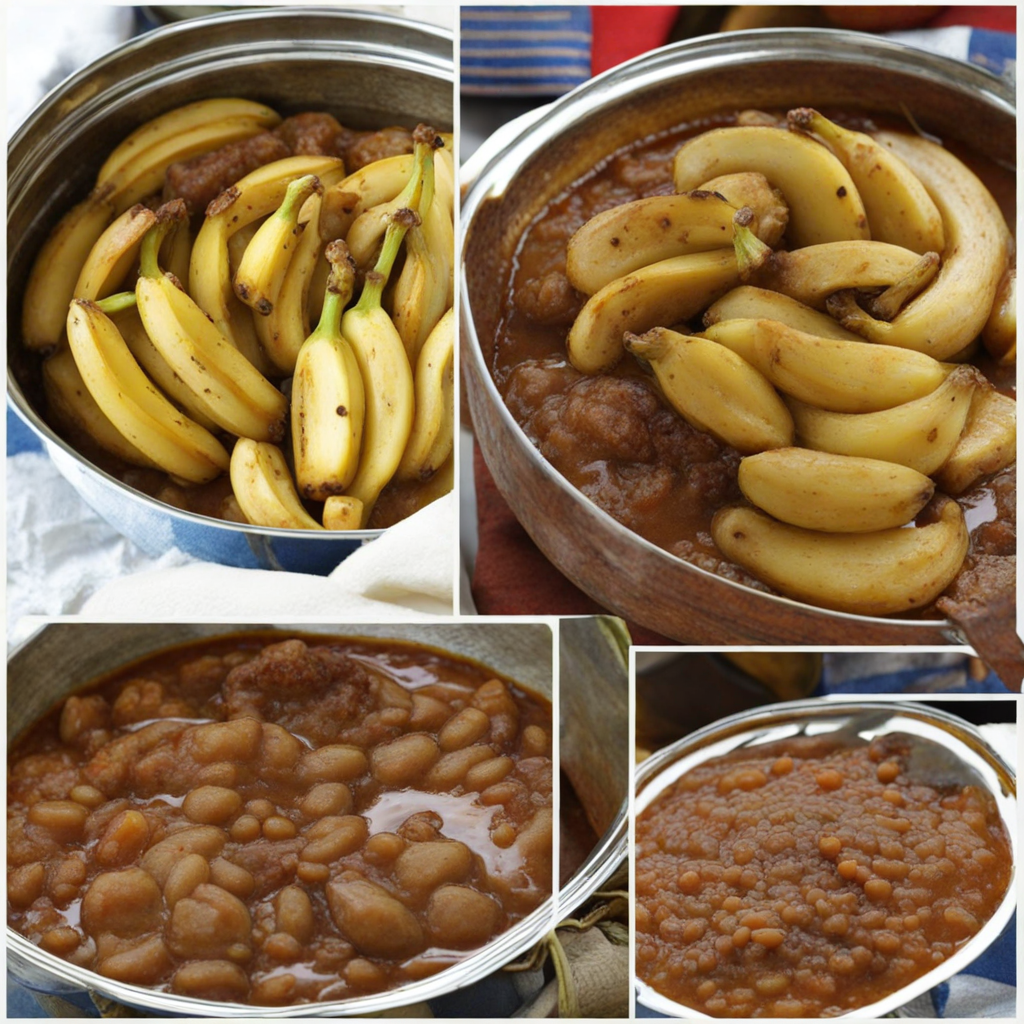Inkoko
Inkoko is a traditional Rwandan dish that centers around chicken, typically prepared in a manner that highlights the country’s rich agricultural heritage and vibrant flavors. The chicken is often marinated with a unique blend of local spices, herbs, and sometimes a touch of citrus, which infuses the meat with a deep, savory flavor. The preparation may involve grilling or slow-cooking, allowing the juices to meld perfectly with the spices, resulting in a tender and aromatic dish that is both satisfying and comforting. Accompanying the Inkoko are often staples like ibihaza (pumpkin), sweet potatoes, or ugali, a type of maize porridge. These side dishes not only complement the chicken but also reflect the agricultural practices prevalent in Rwanda. The combination of the succulent chicken with the hearty sides creates a balanced meal that is nutritious and filling. The use of fresh, local ingredients enhances the overall experience, making every bite a celebration of Rwandan culture and culinary traditions. What makes Inkoko particularly special is the communal aspect of its consumption. Traditionally, the dish is served during gatherings and festivities, bringing people together to share in the joy of food and conversation. The rich flavors, combined with the warmth of communal dining, offer a taste of Rwandan hospitality that leaves a lasting impression. For those seeking to explore new culinary horizons, Inkoko presents an opportunity to savor the essence of Rwanda in each delicious bite.
How It Became This Dish
Inkoko: A Culinary Journey through Rwandan Heritage Origin and Early History Inkoko, the Kinyarwanda word for chicken, holds a special place in Rwandan culture and cuisine. The domestication of chickens in Africa dates back thousands of years, with evidence suggesting that the practice emerged independently in various regions. In Rwanda, chickens became significant not only as a source of food but also as symbols of wealth, status, and community ties. The indigenous Rwandan people, the Tutsi, Hutu, and Twa, have coexisted for centuries, each contributing to the rich tapestry of Rwandan culture. As agriculture became more prominent, so did the raising of livestock, including chickens. The traditional Rwandan chicken, known as "Inkoko y'ubukombe," is a breed well-adapted to local conditions, known for its resilience and ability to thrive in varied environments. These chickens were often raised in family compounds, allowing for easy access and care while also playing a role in social gatherings and rituals. Cultural Significance In Rwandan culture, Inkoko transcends its role as mere sustenance. It is intertwined with social customs and communal activities. Chickens are often given as gifts during important life events such as weddings, births, and funerals, symbolizing prosperity and goodwill. The act of sharing a meal, particularly one featuring Inkoko, strengthens bonds within families and communities. Traditional Rwandan meals often highlight Inkoko in various forms. One popular dish is "Isombe," a cassava-leaf stew that may include chicken, cooked in a rich sauce infused with peanut paste. This dish reflects the agricultural bounty of the region and the harmonious blending of ingredients that characterize Rwandan cuisine. Furthermore, chickens play a role in traditional Rwandan rituals. For example, during the Umuganura festival, which celebrates the harvest, chickens may be offered to ancestors as a sign of gratitude and respect. This practice underscores the importance of connectivity with one's heritage and the spiritual significance attributed to food. Development Over Time As Rwanda navigated through moments of change and turmoil, so too did its culinary practices, including the preparation and consumption of Inkoko. The tumultuous events of the 1990s, particularly the Rwandan Genocide, had profound implications for the nation’s agricultural landscape. Many families lost their livestock and livelihoods, leading to a significant impact on food security. In the years following the genocide, Rwanda embarked on a path of recovery and rebuilding. The government instituted programs aimed at revitalizing agriculture, with an emphasis on livestock rearing, including the revival of chicken farming. The introduction of modern farming techniques and improved breeds has transformed the poultry industry in Rwanda, allowing for greater productivity and economic opportunity for many families. As Rwandans sought to reclaim their cultural identity, traditional dishes like Inkoko became central to this effort. The preparation of chicken dishes often evokes memories of family gatherings and shared experiences, reinforcing the importance of food in the healing process. Today, Inkoko is celebrated in both rural and urban settings, where it is served in homes and restaurants, showcasing the resilience and adaptability of Rwandan cuisine. Modern Interpretations and Global Influence In recent years, the globalization of food culture has seen Rwandan cuisine, including Inkoko, gain recognition beyond its borders. Chefs and culinary enthusiasts are increasingly interested in exploring traditional cooking methods and ingredients, resulting in innovative interpretations of classic dishes. The farm-to-table movement has found a place in Rwandan gastronomy, with an emphasis on using locally sourced ingredients. Contemporary Rwandan chefs are experimenting with Inkoko, incorporating it into fusion dishes that blend traditional Rwandan flavors with international culinary techniques. For example, Inkoko may be marinated in local spices and grilled, served with a side of avocado salad and a tangy sauce, creating a dish that reflects both Rwandan heritage and modern culinary trends. Additionally, the rise of social media has allowed Rwandan food culture to flourish on a global scale. Home cooks and professional chefs alike share recipes, cooking techniques, and stories surrounding Inkoko, helping to raise awareness and appreciation for Rwandan cuisine. This digital platform has become a vital space for cultural exchange, where traditional dishes are celebrated and reimagined. Sustainability and Future Prospects As Rwanda continues to develop, the importance of sustainable practices in agriculture and food production has come to the forefront. The revival of local chicken breeds, such as Inkoko y'ubukombe, is being championed as part of efforts to enhance food security and preserve biodiversity. These traditional breeds are not only well-suited to local climates but also contribute to the resilience of farming communities. Moreover, initiatives promoting poultry farming among women and youth are gaining traction, empowering these groups economically and socially. By providing training and resources, these programs aim to enhance the livelihood of Rwandans while also ensuring the preservation of culinary traditions. In conclusion, Inkoko is more than just a dish; it is an embodiment of Rwandan culture, history, and resilience. From its early roots as a staple in traditional meals to its role in modern culinary innovation, Inkoko continues to evolve while retaining its cultural significance. As Rwanda moves forward, the legacy of Inkoko will undoubtedly remain a vital part of its identity, nourishing both body and spirit while fostering connections within communities and across generations.
You may like
Discover local flavors from Rwanda







